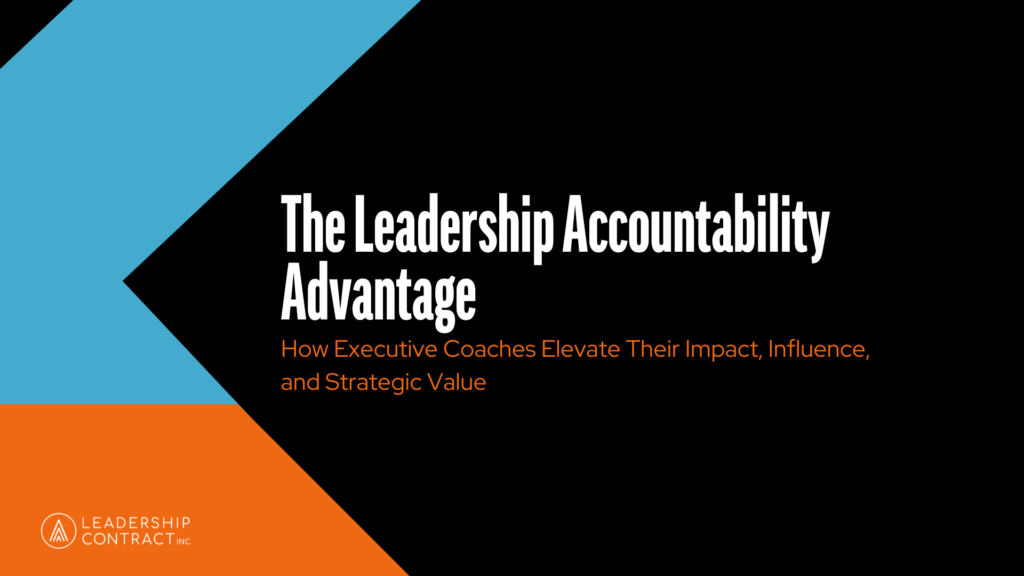The moment I bumped into Mike, it all came flooding back to me.
A now-retired CEO of a large chemical company, Mike had been a client of mine back in the day. That’s not too riveting in and of itself. But it was how he came to be a client that made us both smile when we crossed paths again.
I had been invited by Mike’s CHRO to an exploratory meeting on a potentially large leadership project with their company. As it was explained to me, Mike didn’t want an actual pitch; he just wanted to meet three possible vendors to size them up.
Mike’s company needed to completely rebuild its leadership programs, everything from succession to executive team development and frontline manager training. The company had a long track record of success built on its depth of technical competence. But like many companies, their world was changing. They needed their people in leadership roles to step up and be real leaders and not merely strong technical experts. It had the potential to be a big contract.
When I arrived for my meeting, I was greeted by the CHRO who told me that two other firms had already been in to see Mike and it didn’t go well. “He kicked them both out within the first twenty minutes,” the CHRO said. He warned me that if I was thanked and shown the door in the same amount of time, it was unlikely we were going to get the project.
As I walked through the door into Mike’s office, I wondered if this is how the Christians felt when they were being thrown to the lions.
So, you’re probably wondering if I got shown the door in 20 minutes. I wasn’t. Our discussion lasted two hours. My team and I were invited to submit a proposal and we won got this important work.
After hearing the great news, I called the CHRO. I was curious to learn what our competitors did to get kick out of their meetings, and what I had done to earn Mike’s trust and his company’s business.
“Your competitors came in and schlepped product,” the CHRO said. “You spent the time trying to understand Mike, his strategy and the leadership needs of the company. You asked him a lot of questions. After he met with you the first time, Mike came to me said, ‘He’s a quick study, and he gets me and what we are trying to do.’”
That was the moment I grasped the importance of being a quick study and how important this is for all of us in leadership roles.
Being a leader today isn’t easy. There’s a lot coming at you. And the best leaders I’ve worked with are the ones who can quickly size up all the variables in any given situation, immediately pinpoint what is essential and develop a plan of action.
Recognizing how important this quality is for leaders, I have tried to develop the capacity to be a quick study in myself and my teams over the years. Here are a few things that I have learned along the way:
Be curious. There is an old proverb that says curiosity killed the cat. It is a warning against being too inquisitive. This is the wrong advice for leaders. You need to be constantly exploring your world by asking questions, confronting your assumptions and challenging the status quo.
Read broadly. There’s a lot being written now about the need for leaders to read a lot. But in my experience, it’s not just reading a lot—it’s reading broadly, outside of your own area of focus that is critical. Leaders face more complexity today. Having a broad knowledge base helps you to effectively deal with this heightened complexity in your world.
Create think time. One of the challenges leaders tell me they continue to face is constantly being heads down in execution mode. This is vital to driving today’s results, but you pay a price by being mired in the weeds. This also keeps us a reactive mode all the time.One way to counter-balance this is to build in time to think and explore the future. Start with small, uninterrupted periods of time—perhaps one hour and go from there.
Talk to people outside your world. Do you regularly get out and talk to colleagues outside of your own department or line of business to understand your company more broadly? It’s not enough to just understand the work that’s in front of you; you need to demonstrate a broader knowledge of all the work your organization does and how it’s done.
Be a dot connector. The leader’s I’ve worked with (and who I believe are quick studies) can effectively connect the dots between disparate events or trends. They can spot the patterns emerging among all the areas they are exploring. Then they can help others understand the patterns and see the same connections.
In our world of change, our companies need leaders who are quick studies and able to cut through to what is essential.
Are you a quick study?
Gut Check For Leaders








